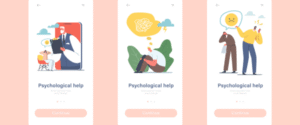Why AI is Important for the Future of Education

Artificial Intelligence (AI) is transforming education, making learning more personalized, efficient, and accessible. With advancements in AI-powered tools, students and educators can benefit from intelligent tutoring, automated grading, and adaptive learning systems. But why AI is important for education’s future? Let’s explore the key reasons.
1. Personalized Learning for Every Student
One of AI’s biggest advantages is personalized learning. Traditional education follows a one-size-fits-all approach, but AI adapts to each student’s needs.
How AI Personalizes Learning:
- AI analyzes student performance and tailors lessons accordingly.
- Adaptive learning platforms adjust content difficulty based on progress.
- Virtual tutors provide real-time feedback to help students improve.
Example: AI-driven platforms like Duolingo and Khan Academy modify lessons based on how quickly a student grasps concepts.
2. AI-Powered Virtual Tutors and Assistants
AI tutors help students outside the classroom by offering guidance anytime. These virtual assistants use machine learning and natural language processing to answer questions and provide explanations.
Benefits:
- Students get 24/7 assistance without waiting for a teacher.
- AI tools identify weak areas and offer personalized suggestions.
- Chatbots simplify homework help and make studying interactive.
Example: AI chatbots like Socratic by Google assist students by breaking down complex problems into understandable steps.
3. Automated Grading Saves Time
Teachers spend countless hours grading assignments, but AI can automate the process. AI-powered grading tools evaluate multiple-choice, short answers, and even essays with high accuracy.
Why Automated Grading is Essential:
- Saves teachers time, allowing them to focus on student engagement.
- Provides instant feedback, helping students learn from mistakes.
- Reduces grading biases, ensuring fair evaluation.
Example: AI-driven platforms like Grammarly and Turnitin analyze written content for grammar, plagiarism, and clarity.
4. AI Enhances Accessibility in Education
AI-driven tools help make education inclusive for students with disabilities. Technologies like speech recognition, text-to-speech, and AI-powered subtitles assist learners with different needs.
AI Accessibility Features:
- Speech-to-text helps students with hearing impairments.
- Text-to-speech aids visually impaired students.
- AI-powered translations support multilingual learners.
Example: Microsoft’s Immersive Reader assists students with dyslexia by improving text readability and comprehension.
5. AI Enables Smart Classrooms
Smart classrooms use AI to create interactive and engaging learning environments. AI-powered virtual reality (VR) and augmented reality (AR) enhance lessons by making them immersive.
Benefits of AI in Smart Classrooms:
- AI analyzes student behavior to identify engagement levels.
- AI-powered simulations make complex topics easier to understand.
- Interactive chatbots and voice assistants help answer questions.
Example: AI-based Google Lens allows students to scan and understand concepts in books through instant explanations.
6. AI Helps in Predicting Student Performance
AI-powered analytics help educators identify students who need additional support. Machine learning algorithms analyze student data to predict performance trends and recommend intervention strategies.
Why Predictive AI is Essential:
- Helps teachers identify struggling students early.
- Recommends customized study plans for better performance.
- Reduces dropout rates by offering timely assistance.
Example: AI-based platforms like Coursera and edX track student progress and suggest learning paths accordingly.
7. AI in Career Guidance and Skill Development
AI helps students choose career paths based on their strengths and interests. Career guidance chatbots provide data-driven recommendations for jobs, courses, and skills to develop.
How AI Helps in Career Development:
- AI-based resume analyzers offer suggestions for job applications.
- Career chatbots match skills with job market trends.
- AI platforms recommend certifications based on industry demands.
Example: LinkedIn Learning uses AI to suggest relevant courses for career growth.
8. AI Enhances Research and Content Creation
AI tools assist students and educators in researching topics and generating content. AI-driven search engines provide precise, relevant information within seconds.
AI in Research and Writing:
- AI-powered search engines deliver accurate academic papers.
- AI tools summarize long documents into key points.
- AI-based writing assistants improve grammar, coherence, and structure.
Example: ChatGPT and Grammarly help students write essays with better structure and clarity.
9. AI Bridges the Gap Between Traditional and Online Learning
With AI, education is no longer confined to classrooms. AI-driven e-learning platforms allow students to learn at their own pace.
How AI is Transforming Online Learning:
- AI tailors learning experiences based on individual progress.
- AI-driven video lectures provide personalized subtitles and summaries.
- AI-powered assessments offer instant feedback and recommendations.
Example: Platforms like Udemy and Coursera use AI to personalize course recommendations.
10. AI Helps in Administrative Tasks
AI isn’t just beneficial for students and teachers—it also helps in educational administration. AI-driven systems automate tasks like scheduling, attendance tracking, and record-keeping, reducing manual workload.
Benefits of AI in Administration:
- AI chatbots assist with student inquiries and enrollment.
- AI manages student records with accuracy and efficiency.
- AI-powered data analysis improves decision-making in education.
Example: AI-driven ERP systems in universities streamline course management and student records.
Conclusion
Education is evolving, and AI is leading the transformation. By personalizing learning, enhancing accessibility, and automating tasks, AI is making education more efficient and engaging. With AI-powered tutors, smart classrooms, and predictive analytics, students receive the guidance and support they need to succeed.
The future of education will rely on AI-driven innovations to improve learning experiences globally. This is why AI is important—it makes education smarter, faster, and more inclusive for everyone.












